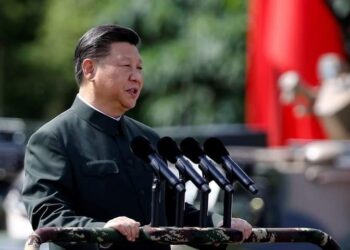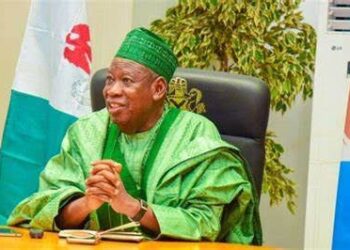Despite the global outrage and protests that trailed the gruesome murder of the 46-year-old African-American, George Floyd, on May 25, 2020, by a white American police, Mr. Derek Chauvin, nothing seemed to have changed in the systematic pattern of police violence and brutality targeted at African-American or blacks in the United States.
Between the brutal murder of Floyd in a heart-wrenching manner and the latest murder of a 26-year-old Patrick Lyoya, when a white police officer wrestled him down and shot him at the back of his head in an execution-style manner, police violence, brutality and abuses have not abated.Floyd brutal murder, when a white American police, Mr. Chauvin knelt on Mr. Floyd’s neck for more than nine minutes, with two other police men messers Alexander Kueng and Thomas Lavel actually assisting him to restrain Mr. Floyd, who was already handcuffed and wrestled facing down, while the fourth police officer Mr. Tou Thao prevented by standers from intervening to save Mr. George Floyd, who was screaming out that he cannot breath.
Even with a universal anger at a consistent pattern of white American police brutality and violence on the black community, the institutional process of policing in the United States, with obvious bias against minority communities, especially the African-Americans have continued. Each brutal murder of African-Americans by the police which are almost and evidently un-provoked, the measures to prevent or avoid the next of such brutal murder appear modest and half-hearted as if to suggest that police violence targeted at black people are embedded in the policing framework in the United States. Most of the white police murder and violence against the blacks always seemed premeditated and consequence of bottled-up racial prejudice. The long enduring bile of racial intolerance and prejudice long-simmering in the United States but camouflaged by expansive rhetoric on equality, human rights and democracy feeds into the mental frame of any White police officer that blacks are quite expendables whose lives could be brutally cut short with a considerable degree of institutional acquiesce, notwithstanding some modest retributions against the offending officer. Such measures as the trial, conviction and sentencing of Derek Chauvin in the brutal murder case of Mr. George Floyd have the instant effect of dousing and assuaging the emotive public anger of the moment but actually does nothing to shake-up the institutional and systemic notions that underwrite the excesses of individual white police operatives. Despite the extent, degree and frequency of police violence and brutality affecting African-Americans and the black community in general , African governments and even its organizational platform has remained largely silence or rather aloof.
The United States Foreign affairs office makes a ritual of publishing records of human rights abuses in Africa and point to a retinue of violations across Africa and yet it remains of huge concern and even worry that no African government has so far documented and publish escalating cases of rights violations in the U.S, especially the notorious and escalating police violence and brutality in which African-Americans and the black community have been routinely and systematically targeted. While such peer reviews of rights violations might unnerve the arrogant U.S political establishment, such efforts by African governments to track, document and publish annual reports on human right violations in the United States, may actually spur a ground breaking institutional and systemic reform, which is the real infrastructure for racial prejudice and the abuses, including police violence and brutality which is rather the consequence.The unending white police violence in the United States, especially with more lethal consequences when it involves black victims raised the global movement and slogan of “black lives matter.” But this raises the ugly question of whether a movement is needed or a slogan crafted before it is recognized that black lives as life should matter. It should be taken for granted that all lives matter and the institutional process and systematic framework that pre-supposes that a certain life does not matter on condition of race is therefore, fundamentally flawed and should be vehemently rejected.
Africa governments and African voices including political parties, trade union movements and other civic groups cannot in good conscience remain aloof and unconcerned while African-Americans and the black community in general are relentlessly brought under the pressure of police violence and brutality in the United States. While it is readily admitted that these African-Americans are American citizens or legally residing in the United States, their conditions of existence, their progress or otherwise, their travails are part and parcel of Africa’s heritage and constitute Africa’s contributions to human civilization.
It is my belief that for the United States and Africa to have conversation around the fate of the Africa-Americans and the black community in general in the U.S and African governments should lead the way. The increasing and unending wave of white police violence and brutality targeting especially the black people cannot anymore be accepted as normal and without any consequence for Africa-U.S relations.
Onunaiju, an international Affairs analyst, writes from Abuja.




